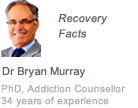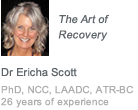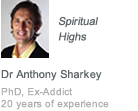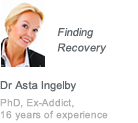Dextromethorphan Addiction
Dextromethorphan addiction is a very real and very serious problem. It is difficult to believe that a common medication, which is available in literally hundreds of over-the-counter remedies, can cause such severe and extremely dangerous addiction. Dextromethorphan, a drug found in nearly every cold and cough preparation, is, as unlikely as it may seem an extremely addictive one.
The most serious concern, obviously, is that an individual will develop a cough, and come away with, not only a cured cough, but a very serious addiction as well.
Serious abuse issues related to Dextromethorphan have been noted in the United States since the early 1950’s when the medication was first introduced. However, until physicians realized that there were serious addiction risks involved in the consumption of this medication, there was nothing to be done. Only once research began to be released, and the true effects of the drug were made public, could the product begin to be regulated.
Why dextromethorphan is addictive
Dextromethorphan is addictive because the medication contains a Narcotic agent, a codeine analog called levorphanol. And, while this “narcotic” is only present in small amounts per dose of the cough syrup, or whichever cold preparation is being considered, when taken in much larger doses, can leave the addict with a very sedative and euphoric feeling.
In high doses, Dextromethorphan can cause dissociative effects much like those seen with Ketamine (a common cat tranquilizer), and PCP use, abuse, and addiction. High enough doses can “transport” the Dextromethorphan addict to varying “plateaus” of mental disassociation. At doses of roughly 120 mg, users report mild stimulant effects and slight visual distortions. At much higher doses, in the range of 10oz or more, there have been reports of total dissociation from ones body, mind, and senses, and while these effects only last between 5 and 7 hours at lower doses, the effects of higher doses can last for up to 14.
There have been recent studies that indicate Dextromethorphan abuse, and the ingestion of the drug in high enough dosages, can cause feelings of invincibility and super-human indestructibility much as PCP does. These reports, if accurate, would indicate that Dextromethorphan addiction could lead the addict to believe that they can fly, or even dive from great heights and not be affected. Clearly, this is an erroneous assumption.
How to identify dextromethorphan addiction
- Does the individual ever use Dextromethorphan by himself or herself?
- Has the individual ever stolen a bottle of cough syrup or any other medication that contains Dextromethorphan?
- Is the cough syrup or the medication containing Dextromethorphan the first thing that the individual reaches for in the morning?
- Is the life of the individual made unmanageable by the use of Dextromethorphan in any way at all?
If you can answer yes to at least two of these questions, than you may have an issue with Dextromethorphan addiction and should make an appointment to discuss the possibility further with your family physician.
What are the effects of dextromethorphan abuse
The effects of Dextromethorphan can vary greatly depending upon frequency and longevity of use. If one is afflicted with Dextromethorphan addiction, and takes extremely high doses, more than 10 oz a day, the drug can have the same or very similar effects, as does LSD. If the individual afflicted with Dextromethorphan addiction takes lower dosages, but still on a regular basis, then the drug can act very similarly to Ketamine, which is a cat tranquilizer, but powerful enough to be used on horses if the dosage is correct.
In other words, a medication as unassuming as OTC cough syrup can have tremendous and often grave effects.
If someone becomes a Dextromethorphan addict, then their condition should be treated just as any other addiction would. An appropriate rehabilitation center should be located, preferably inpatient, and the addict should be enrolled. In the treatment center the addict should be slowly weaned off the drug, sometimes with the use of other medications, and sometimes without. A personal treatment plan will be written up for the addict, and the team of professionals at the facility will implement the plan as quickly or as slowly as is deemed appropriate. The goal of the program, obviously, is to get the addict to a point where they can once again function normally in the outside world, no longer feeling the need or urge to use their drug of choice, in this case Dextromethorphan.
Which products contain dextromethorphan?
Below is a partial list of some of the more popular OTC medications that do contain Dextromethorphan, and should be avoided at all costs:
- Triaminic
- Dimetapp DM
- Robitussin
- Sudafed
- Vicks NyQuil LiquiCaps
- Alka-Seltzer Plus Cold & Cough medicine
- Vicks-Formula 44
- Tylenol Cold
Negative side effects of dextromethorphan abuse
Abusers have described everything from nausea, drowsiness, fever, excessive sweating, and increased heart rates, to, on the more extreme end, LSD like symptoms such as color and sound distortions, to full blown hallucinations, dilated pupils, disassociation, slurred speech, loss of motor control, and even out or body experiences.
Small doses are fine, and when the drug is used as a medication appropriately to suppress a legitimate cough then clearly it is not a problem even if a small amount of system stimulation is included.
The real problems begin when an addict alters the medication so that they are receiving a pure dose of Dextromethorphan, at say 500 mg. These are the size dosages that individual afflicted with Dextromethorphan addiction take, and dosages this high do cause major and uncontrollable side effects such as:
- Near total dissociation
- Near Complete loss of motor control
- Unbearably intense hallucinations
If the addict does not separate the Dextromethorphan from the Acetaminophen that is usually also contained in the medication, instant liver damage may occur, requiring an immediate visit to an emergency room.
Attempting to detox oneself from high doses of Dextromethorphan can have dire effects, and as stated earlier it is always a better idea to check in to a residential detox/recovery center and let them handle the detox professionally.
According to the National Highway Traffic Safety Administration, “withdrawal symptoms include insomnia, dysphoria and depression.” Dextromethorphan addicts also complain of itchy skin. The hardest part of Dextromethorphan detox is the depression. The dissociative effects can cause extremely serious, and prolonged psychological issues with some recovering drug abusers.
Recommendations for physicians
- It is very important to have a record, as complete as possible, of all non-prescription medications your patient currently takes or has taken.
- If the patient seems to be taking abnormally large dosages of any OTC (over the counter) medications, it is important to verify whether or not the medication or any of its active ingredients can be addictive.
- Be sure to treat the patient’s addiction to the OTC medication as seriously as you would treat any (in your opinion) legitimate addiction. This is their addiction, and they are indeed just as addicted, as one would be to say, heroin.
- Recommend a course of action for the patient. Present them with possible treatment programs, but be sure to follow up with the support staff at the program so that they too understand the seriousness of the patient’s addiction. It is very easy for treatment center staff to minimize the seriousness of someone’s addiction to cough syrup, when they are regularly assigned to work with individuals who are addicted to “real” drugs.
- Dextromethorphan is a real drug.
- In addition, just as you would with any addicted patient in recovery, make sure to follow up with them on a regular or even semi-regular basis to make sure that they are still living their lives on the straight and narrow.












